Learn about waste and its impact
E-books
Books give us knowledge and evidence about the ecology and how weperceived the world. All militate for a responsible world and allow us to raise our awareness of environmental issues. Here is our choice.

Tara’s blue book: for the pacific
Tara Ocean Foundation
Free download
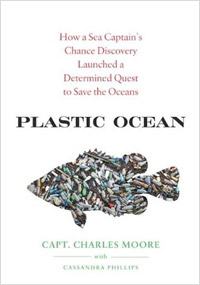
Plastic Ocean
Capt Charles Moore
Find out more
In 1997, environmentalist Charles Moore discovered the world’s largest collection of floating trash—the Great Pacific Garbage Patch (“GPGP”)—while sailing from Hawaii to California. Moore was shocked by the level of pollution that he saw. And in the last 20 years, it’s only gotten worse—a 2018 study has found that the vast dump of plastic waste swirling in the Pacific Ocean is now bigger than France, Germany, and Spain combined—far larger than previously feared.
In Plastic Ocean, Moore recounts his ominous findings and unveils the secret life of plastics. From milk jugs and abandoned fishing gear to polymer molecules small enough to penetrate human skin and be unknowingly inhaled, plastic is now suspected of contributing to a host of ailments, including infertility, autism, thyroid dysfunction, and certain cancers. An urgent call to action, Plastic Ocean’s sobering revalations have been embraced by activists, concerned parents, and anyone alarmed by the deadly impact and implications of this man-made environmental catastrophe.
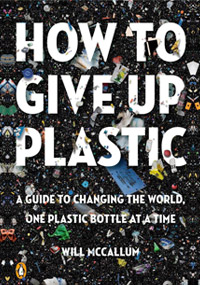
How to Give Up Plastic
Will McCallum
Find out more
How to Give Up Plastic is a straightforward guide to eliminating plastic from your life. Going room by room through your home and workplace, Greenpeace activist Will McCallum teaches you how to spot disposable plastic items and find plastic-free, sustainable alternatives to each one. From carrying a reusable straw, to catching microfibers when you wash your clothes, to throwing plastic-free parties, you’ll learn new and intuitive ways to reduce plastic waste. And by arming you with a wealth of facts about global plastic consumption and anecdotes from activists fighting plastic around the world, you’ll also learn how to advocate to businesses and leaders in your community and across the country to commit to eliminating disposable plastics for good.
It takes 450 years for a plastic bottle to fully biodegrade, and there are around 12.7 million tons of plastic entering the ocean each year. At our current pace, in the year 2050 there could be more plastic in the oceans than fish, by weight. These are alarming figures, but plastic pollution is an environmental crisis with a solution we can all contribute to.
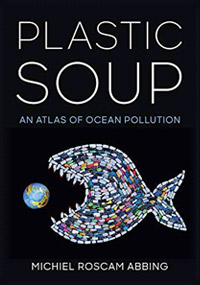
Plastic Soup
Micheal Roscam Abbing
Find out more
In Plastic Soup, Michiel Roscam Abbing of the Plastic Soup Foundation reveals the scope of the issue: plastic trash now lurks on every corner of the planet. With striking photography and graphics, Plastic Soup brings this challenge to brilliant life for readers. Yet it also sends a message of hope; although the scale of the problem is massive, so is the dedication of activists working to check it. Plastic Soup highlights a diverse array of projects to curb plastic waste and raise awareness, from plastic-free grocery stores to innovative laws and art installations.
According to some estimates, if we continue on our current path, the oceans will contain more plastic than fish by the year 2050. Created to inform and inspire readers, Plastic Soup is a critical tool in the fight to reverse this trend.
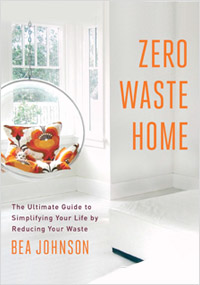
Zero waste home
Bea Johnson
Find out more
In Zero Waste Home, Bea Johnson shares the story of how she simplified her life by reducing her waste. Today, Bea, her husband, Scott, and their two young sons produce just one quart of garbage a year, and their overall quality of life has changed for the better: they now have more time together, they’ve cut their annual spending by a remarkable 40 percent, and they are healthier than they’ve ever been.
This book shares essential how-to advice, secrets, and insights based on Bea’s experience. She demystifies the process of going Zero Waste with hundreds of easy tips for sustainable living that even the busiest people can integrate: from making your own mustard, to packing kids’ lunches without plastic, to canceling your junk mail, to enjoying the holidays without the guilt associated with overconsumption. Zero Waste Home is a stylish and relatable step-by-step guide that will give you the practical tools to help you improve your health, save money and time, and achieve a brighter future for your family—and the planet.
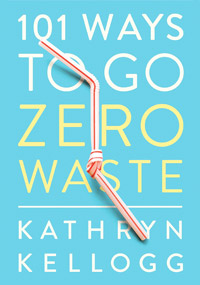
101 ways to go Zero waste
Kathryn Kellogg
Find out more
We all know how important it is to reduce our environmental footprint, but it can be daunting to know where to begin. Enter Kathryn Kellogg, who can fit all her trash from the past two years into a 16-ounce mason jar. How? She starts by saying “no” to straws and grocery bags, and “yes” to a reusable water bottle and compostable dish scrubbers.
In 101 Ways to Go Zero Waste, Kellogg shares these tips and more, along with DIY recipes for beauty and home; advice for responsible consumption and making better choices for home goods, fashion, and the office; and even secrets for how to go waste free at the airport. “It’s not about perfection,” she says. “It’s about making better choices.”
This is a practical, friendly blueprint of realistic lifestyle changes for anyone who wants to reduce their waste.
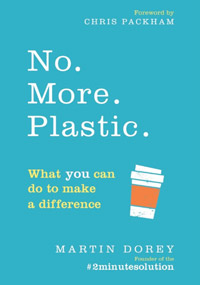
No. More. Plastic.
Martin Dorey
Find out more
‘I read this book yesterday and I’ve done three things today and that is testament to Martin’s brilliant vision and ideas. Now it’s your turn!’ Chris Packham
‘Once, plastic was the miracle material. Now it’s the monster. We all need to cut down our plastic consumption and join Martin’s #2minutesolution anti-plastic movement. I’m in.’ Julia Bradbury
Open this book with your children, give it to your friends. Share your #2minutesolution on twitter and instagram and inspire others.
Martin Dorey, anti-plastics expert, has been working to save our beaches from plastic for the past 10 years. His Beach Clean Foundation and global call to arms #2minutebeachclean has been taken up by people all over the world, and has proven that collective small actions can add up to a big difference. Together we can fix this.
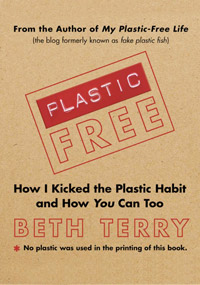
Plastic FREE
Beth Terry
Find out more
Presenting both beginner and advanced steps, Terry includes handy checklists and tables for easy reference, ways to get involved in larger community actions, and profiles of individuals—Plastic-Free Heroes—who have gone beyond personal solutions to create change on a larger scale. Fully updated for the paperback edition, Plastic-Free also includes sections on letting go of eco-guilt, strategies for coping with overwhelming problems, and ways to relate to other people who aren’t as far along on the plastic-free path. Both a practical guide and the story of a personal journey from helplessness to empowerment, Plastic-Free is a must-read for those concerned about the ongoing health and happiness of themselves, their children, and the planet.
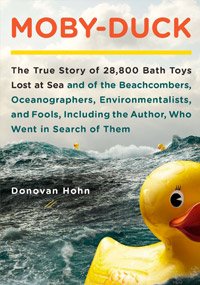
Moby-Duck
Donovan Hohn
Find out more
When the writer Donovan Hohn heard of the mysterious loss of thousands of bath toys at sea, he figured he would interview a few oceanographers, talk to a few beachcombers, and read up on Arctic science and geography. But questions can be like ocean currents: wade in too far, and they carry you away. Hohn’s accidental odyssey pulls him into the secretive arena of shipping conglomerates, the daring work of Arctic researchers, the lunatic risks of maverick sailors, and the shadowy world of Chinese toy factories. Moby-Duck is a journey into the heart of the sea and an adventure through science, myth, the global economy, and some of the worst weather imaginable.
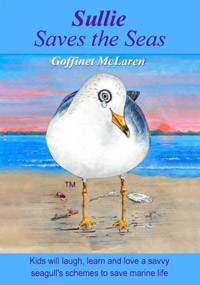
Sullie Saves the Seas
Goffinet McLaren
Find out more
Sullie and his Secret Society of birds create a fun filled, exciting, adventure that takes aim at specific thoughtless humans who are causing environmental damage to the beach and to Sullie`s ocean pals.
Chapter by chapter, Sullie`s clever plot delivers a delightful tale that you will enjoy sharing with your children and friends.
McLaren`s story targets 8 – 12 year olds, but kids of all ages will laugh with, learn from, and love a savvy seagull`s schemes to save the ocean.
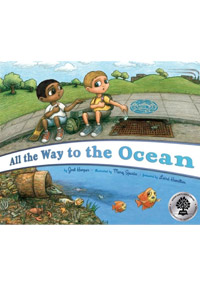
All the way to the Ocean
Joel Harper
Find out more

1, 2, 3, who’s Cleaning the Sea?
Janina Rossiter
Find out more
This picture book will teach your child to associate numbers with their quantities while also learning about the importance of keeping plastics and other pollutants out of our oceans. Younger children will be able to count along and slightly older children (ages 4-6) will learn to make logical connections between numbers and facts. Readers of all ages will enjoy the pictures, the story, and the message.
Do you know of any references to add to this list?
Thanks for providing your opinion!

